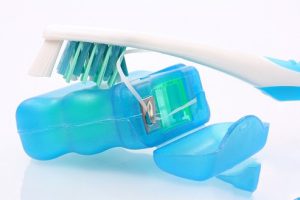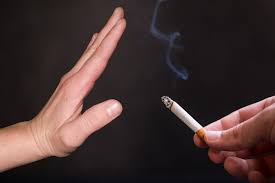If your teeth have discolored for no apparent reason and other symptoms have appeared, see a dentist to diagnose the cause and recommend appropriate treatment.
There are several reasons for discolored teeth, including:
♦ Food and beverages: Coffee, tea, soft drinks, some juices and vegetable juices (such as apple juice and tomato juice) can stain teeth.
♦ Tobacco use: Smoking or chewing tobacco can stain teeth.
♦ Keeping teeth clean: Brushing and flossing regularly can remove dental plaque and toothpaste materials such as coffee and tobacco and prevent tooth discoloration.

♦ Diseases: Various diseases can affect the enamel (hard surface on the tooth) and dentin (the material under the enamel) and cause discoloration of the teeth.
Some treatments can also affect tooth color. For example, radiotherapy (radiation therapy) of the neck and head as well as chemotherapy can cause discoloration of the teeth.
In addition, some infections in pregnant mothers can change the color of the teeth in the baby by affecting the growth of fetal enamel.
♦ Medications: Giving tetracycline and doxycycline antibiotics to children under the age of 8 whose teeth are still growing can change the color of their teeth.
Using mouthwashes containing chlorhexidine and styrene pyridinium chloride can cause tooth decay. Antihistamines (such as Benadryl), antipsychotics, and high blood pressure medications can also change the color of teeth.
♦ Dental materials: Some materials used in dentistry, such as dental fillings and especially materials containing silver sulfide, cause a blackish-gray color in the teeth.
♦ Aging: As you age, the outer layer of the enamel gradually wears away and reveals the natural yellow color of the dentin (the dentin is under the enamel).

♦ Inheritance and genetics: Some people genetically have lighter or darker teeth than others.
♦ Environmental factors: Excessive use of fluoride causes discoloration of teeth. This extra fluoride can enter the body through natural sources (such as high-fluoride drinking water) or mouthwash, toothpaste, fluoride therapy in children, or supplementation.
♦ Injuries and injuries: For example, injuries caused by falling in children and trauma to the teeth, can disrupt the formation of tooth enamel, because children’s teeth are still growing. Injuries can also cause tooth discoloration in adults.
How to prevent tooth discoloration?
By making a few simple lifestyle changes, you can prevent tooth discoloration, for example, if you drink a lot of coffee or smoke, reduce or even cut it down.

Also, brush and floss regularly to keep your teeth clean, and see an orthodontist every six months to have your teeth cleaned.
If your teeth have discolored for no apparent reason and other symptoms have appeared, see a dentist to diagnose the cause and recommend appropriate treatment.
What are the methods for teeth whitening?
Teeth whitening methods vary depending on the cause of the discoloration and can include the following:
♦ Learn the correct method of brushing and flossing from a dentist
♦ Avoid eating foods and beverages that cause discoloration and staining of teeth
♦ Tooth bonding (tooth transplantation)
♦ Tooth veneer
♦ Using teeth whitening materials prescribed by a dentist
♦ Using teeth whitening methods in dentistry
♦ Using teeth whitening materials that do not require a dentist’s prescription.
Medical site and health magazine im healthiest
